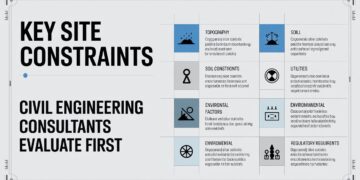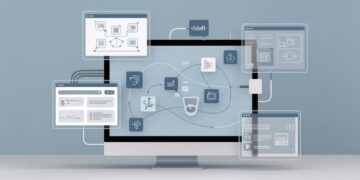In today’s fast-paced logistics industry, Trucking Management Software (TMS) has become an indispensable tool for businesses aiming to streamline operations, enhance efficiency, and maximize profitability. This software is the backbone of modern freight management, offering a wide array of features tailored to meet the diverse needs of trucking companies, freight brokers, and logistics providers. Let’s delve into the core aspects of TMS and how it transforms trucking operations.
What is Trucking Management Software?
Trucking Management Software is a digital solution designed to help trucking companies manage their daily operations effectively. It provides tools to oversee dispatching, route optimization, load planning, billing, and compliance, among other critical tasks. By automating routine processes and offering real-time insights, TMS empowers businesses to improve their service quality while reducing costs.
Key Features of Trucking Management Software
1. Load Management and Dispatching
Efficient load management is vital for trucking companies. A robust TMS enables:
- Real-time Load Tracking: Monitor shipments at every stage, ensuring timely deliveries.
- Automated Dispatching: Assign loads to drivers based on their location, availability, and vehicle capacity.
- Driver Communication: Integrated messaging systems keep drivers updated on route changes and load details.
2. Route Optimization
One of the standout features of a TMS is its ability to optimize routes. By leveraging advanced algorithms and real-time data, TMS helps:
- Reduce fuel consumption by identifying the shortest or most efficient routes.
- Avoid traffic congestion and roadblocks.
- Enhance delivery schedules for improved customer satisfaction.
3. Fleet Maintenance Management
Fleet maintenance is critical for minimizing downtime and ensuring safety. TMS offers:
- Scheduled Maintenance Alerts: Preventive maintenance reminders based on mileage or usage.
- Vehicle Inspection Logs: Track inspection reports and address issues promptly.
- Repair History Records: Maintain a comprehensive history of all repairs for better decision-making.
4. Compliance and Reporting
Compliance with government regulations is non-negotiable in the trucking industry. TMS simplifies compliance by:
- Generating Electronic Logging Device (ELD) reports.
- Monitoring Hours of Service (HOS) to avoid violations.
- Providing International Fuel Tax Agreement (IFTA) reports for tax compliance.
5. Billing and Invoicing
Accurate and timely billing is crucial for maintaining cash flow. TMS streamlines financial processes by:
- Automating invoice generation based on completed shipments.
- Offering integration with accounting software for seamless financial management.
- Reducing errors through automated data entry.
6. Customer Relationship Management (CRM)
Building strong relationships with clients is easier with integrated CRM features, which include:
- Customer Portals: Allow clients to track their shipments in real-time.
- Performance Metrics: Provide insights into delivery performance and service quality.
- Feedback Management: Gather and analyze customer feedback for continuous improvement.
Benefits of Trucking Management Software
1. Enhanced Efficiency
TMS automates time-consuming tasks, freeing up resources for strategic activities. This leads to faster decision-making and improved operational efficiency.
2. Cost Savings
By optimizing routes, managing fuel consumption, and reducing manual errors, TMS significantly lowers operational costs.
3. Improved Customer Satisfaction
Real-time tracking, timely deliveries, and accurate invoicing contribute to a superior customer experience, fostering loyalty and repeat business.
4. Scalability
As your business grows, TMS can scale to accommodate increased workloads and additional functionalities, ensuring long-term utility.
5. Data-Driven Insights
TMS collects and analyzes data from various operations, providing actionable insights that drive strategic decisions and identify improvement areas.
Choosing the Right Trucking Management Software
When selecting a TMS, consider the following factors:
1. Customizability
Ensure the software can be tailored to meet your specific business needs, whether you’re a small fleet operator or a large logistics provider.
2. Integration Capabilities
The software should seamlessly integrate with existing systems such as accounting software, GPS trackers, and ELD devices.
3. User-Friendliness
A simple and intuitive interface minimizes the learning curve for employees, boosting adoption rates and productivity.
4. Cost-Effectiveness
Assess the total cost of ownership, including implementation, training, and ongoing maintenance, to ensure it aligns with your budget.
5. Vendor Support
Reliable customer support and regular software updates are crucial for maximizing the value of your TMS investment.
Future Trends in Trucking Management Software
The TMS landscape is evolving rapidly, with advancements such as:
1. Artificial Intelligence (AI) and Machine Learning
AI-powered analytics and machine learning algorithms are transforming route optimization, predictive maintenance, and demand forecasting.
2. Blockchain Technology
Blockchain ensures secure and transparent record-keeping, enhancing trust among stakeholders.
3. Internet of Things (IoT)
IoT-enabled sensors provide real-time data on vehicle performance, cargo conditions, and environmental factors, improving decision-making.
4. Cloud-Based Solutions
Cloud-based TMS offers greater accessibility, scalability, and cost efficiency, making it an attractive option for businesses of all sizes.
Trucking Management Software is revolutionizing the logistics industry by streamlining operations, improving efficiency, and enabling data-driven decision-making. With its wide range of features, TMS empowers trucking companies to stay competitive in an ever-evolving market. Investing in the right TMS not only enhances operational capabilities but also positions your business for long-term success.

















